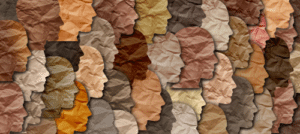Black History Month, Jason Shaw, MA, LCPC
- Jason Shaw
- Feb 1, 2024
- 3 min read
Updated: Sep 14, 2025

February marks the annual celebration of Black History Month, a time of remembrance and celebration of Black history. It began in 1926 by historian, Carter G. Woodson, when he announced the second week in February, coinciding with President Abraham Lincoln and Abolition/Social Reformer Frederick Douglass’ birthdays, as “Negro History Week.” Woodson saw this time as an opportunity to not only focus on the history of African Americans but also found it essential in the preservation of physical and intellectual survival stating, “If a race has no history, it has no worthwhile tradition, it becomes a negligible factor in the thought of the world, and it stands in danger of being exterminated. 1 ” Since, it has expanded to be the entirety of February continuing to honor and celebrate Black stories, cultural figures, and other important moments in Black History.
In observing this time, it is important to remember Black History Month for what it stood for during those times: a way for Black Americans to combat racism and hurtful narratives with truth and fight for equal rights. To remember that point is to reflect on the past in an honest way and to challenge ourselves to continue to do so in our present day. In the year 2023, there are many opportunities for that to be done, especially in the mental health field where of those who receive services, only 13% are Black 2 , 3% of therapists are reporting as Black 3 , and access to mental health services negatively impact Black people at an extremely high rate.
Whether you are a (potential) client or a member of the mental health field, here are a few things you can do to be an active participant in observing and remembering Black History Month:
● Advocate for better access to mental health services whether that be through writing to local politicians or offering free/reduced services for intentionally under-resourced communities.
● Grow in being anti-racist through learning, listening, and then action. Find material by Black creatives, authors, and civil rights activists and engage in it to be able to walk away with a solid understanding and foundation to call out racism when it is happening.
● Be willing to make mistakes. No one is perfect and no one is going to get it right each time, so be willing to hold yourself and others accountable while also extending grace.
● Celebrate Black history outside of February. Understand that Black History is a part of American History and should have equal acknowledgment and celebration throughout the year as such.
● Volunteer and donate. Whether that be financially, emotionally, or physically showing up, do what you can to take action to advocate for those who are part of underrepresented communities.
● Destigmatize mental health. There is often a general mistrust of medical professionals due to the history of misdiagnosing and exploitation. Working to change the narrative and create welcoming environments to help destigmatize is important work to increase access to help for Black people.
Woodson, C. G. (1926). Negro History Week. The Journal of Negro History, 11(2), 238–242. https://doi.org/10.2307/2714171
Terlizzi, E. P., & Zablotsky, B. (2020, September 23). Products – Data Briefs – Number 380 – September 2020. CDC. Retrieved December 13, 2021, from https://www.cdc.gov/nchs/products/databriefs/db380.htm
American Psychologocial Association. (2020, November 1). Psychology’s workforce is becomingmore diverse. American Psychological Association. Retrieved December 13, 2021, from https://www.apa.org/monitor/2020/11/datapoint-diverse







Comments